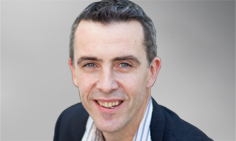CHARLES may have been dying, but he could still play a mean game of chess.
As I set down the chessboard, he growled in his Scottish drawl: “White on right”. I turned the board 90 degrees and started to arrange the pieces, duly humbled.
This was a deliberate strategy on his part to make you feel unnerved. He could have turned the board himself and saved my embarrassment, but in his mind the game had already started.
The Moreton Bay fig outside allowed only dappled light to hit the stained glass of the window we played under. Very old school — very Charles. The fig and the garden around it now dominated his ever diminishing world. He had always loved his garden.
He had also always loved his wife. Their relationship was a thing of beauty that had stood the test of time. She was class — quiet and elegant, her softness providing the chiaroscuro that gave their relationship form.
As she set down the coffee, Charles made his usual start. Like so many, his game revealed the player. Aggressive starts, bluff and bluster, but subtlety behind it all. He usually had my mark, and so it was again that day, the last time we played.
The palliative nurse would visit Charles and give me a call afterwards, advising on progress and requesting scripts. Charles would never do anything she or her colleagues suggested without checking with me first, which was annoying. The nurses knew a mile more that I did, but that didn’t matter to him.
I was like one of his old wharfie mates who had been through previous battles with him. I had his trust, his hard earned respect — in medicine, if not in chess.
For such a gruff man, it was surprising to see the quantity and quality of those who visited him, who supported him through those months, who turned up to his funeral. Beyond his family, the respect he commanded echoed through his social circles. His social ecology was as well tended as his garden.
It was a long time ago, but Charles was one of those patients who sticks in the mind. The type of patient with whom a shared understanding develops, often facilitated through shared traumatic experiences — fear, pain, loss or death, followed by recovery or acceptance.
On the rollercoaster of life we sometimes need a passenger, and sometimes that passenger is the family doctor.
After the drama, things may settle. Life may return to normal for a while. Yet, the connection, that mind-to-mind link, remains, broadband and resolute.
It is these special connections that define and distinguish my profession like no other.
Broader in scope than the specialist physician or surgeon, more personal than the psychologist, more longitudinal than the palliative care physician, yet more detached than loved ones, we are given a precious gift; a holistic view of humanity over the lifespan.
A gift I, for one, will always be grateful for.
Dr James Best is a GP practising in Sydney and is a former winner of the Royal Australian College of General Practitioner General Practice Supervisor of the Year Award.

 more_vert
more_vert
It is an unbelievable privilege that doctors acquire/earn that we can be part of the lives of our patients.However the relationship,like any other,requires a lot of effort and,both parties have choices to make.
Thanks for your article Dr Best.You are obviously a doctor who has decided to commit that much more to your patients, probably to your or your loved one’s cost.
James, Thankyou for the elegant description of your therapeutic relatonship with your patient. As GPs we have a priviledged position in our patients lives and the longer I work in general practce the more cognisant I am of the unique role we can play if we choose. We have the chance to see our patients develop and grow over tiime and to watch as they learn to cope with adversity, illness and health. It is an education and indeed a gift.
In my old age, in my retirement, nostalgia is an inescapable distraction. In my younger (much younger) days, James_Best_GPs were the norm. Not a GP, but “the family doctor”, or “my doctor” who was trusted and revered as a healer and a friend (or one of the family). The family doctor saw children grow to adulthood and parenthood.
But this intimacy, this powerful relationship did not develop in lavish consulting rooms, nor in medical centre factories, rather it evolved in house calls where the doctor humbly shared his patient’s home and family.
This is how it was, and those men and women who chose to be GPs knew that this was how it was; their desire was to be a “family doctor” who could provide healing, succour and counsel. James Best understands.
Thanks for a lovely reflection, James. These well crafted GP tales remind us why we are in the job.
> “Yet, the connection, that mind-to-mind link, remains, broadband and resolute.”
Since the advent of online chess sites, I have played chess thousands of times and remain disturbingly bad at the game. But then, I have lacked a Charles growling at me from the opposite side; no ‘mind-to-mind link’, despite my broadband connection. I guess, in the end, it is the relationship with the bloke responding to your moves that matters.